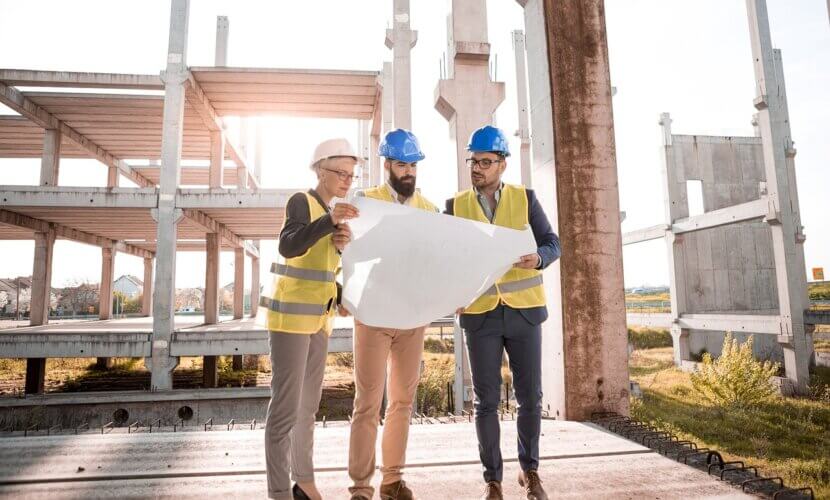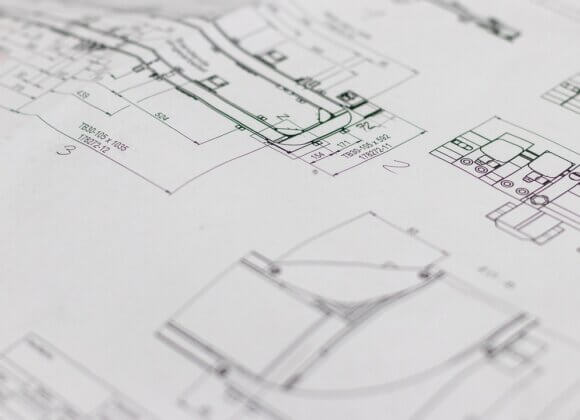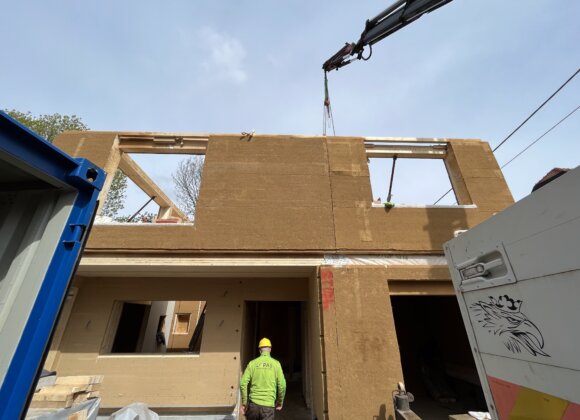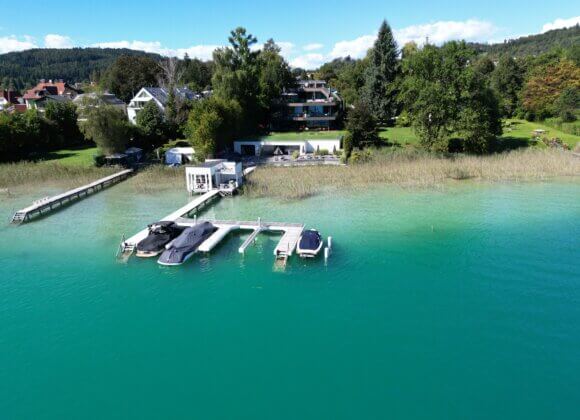The figures speak for themselves: in 2023, around 13,700 apprentices were working in the fields of construction, architecture and building technology. This confirms once again that the construction industry is one of the most important economic sectors in the country. And sound training in the construction industry is essential – even if things used to be different. Just 40 or 50 years ago, the focus was on practical experience on construction sites and knowledge was passed down from generation to generation. Today, modern training courses combine theory and practice in order to meet the increasing demands.
And this is exactly what matters – after all, good training is the basis for technical and commercial know-how, as it were, and also strengthens leadership and problem-solving skills.
In this interview, Edwin Brunner, Managing Director of BauManagement Brunner GmbH, explains which paths lead to construction supervision, which qualifications are important and how the occupational field will develop in the future.
Which training paths typically lead to construction supervision – and how long does the training take?
Typical training paths to construction management or local construction supervision lead via construction-related professions such as master builder or a degree in construction. Training to become a master builder often begins with an apprenticeship, for example as a draughtsman or bricklayer, which usually lasts three years. Alternatively, entry can be via a five-year HTL course in building construction and civil engineering.
After appropriate professional practice, the additional master builder training takes a further four to twelve months. It ends with a comprehensive examination, which is conducted by a commission in five modules.
A bachelor’s degree in construction usually takes three to four years, with many graduates then opting for a master’s degree, which takes a further one and a half to two years. Practical experience on construction sites is essential regardless of educational background and is often gained through internships or entry-level positions as an assistant site manager.
In other words, you have a few options. Which path would you particularly recommend?
The choice of training path is very individual. The apprenticeship route to becoming a master builder has the advantage of being practical, usually part-time, but also more time-consuming. A degree course, on the other hand, focuses strongly on theoretical knowledge, but practical experience often falls by the wayside.
Which qualifications that are essential for this profession should you have – whatever training you choose?
Technical and commercial understanding, knowledge of construction law and communication skills are essential. Leadership qualities, stress resistance and problem-solving skills also play a major role.
What are the most important points that are taught as part of the training?
The central topics of the training include statics, building construction, construction process engineering, construction economics, building law and regulations. Project management is also included.
Are there differences in the requirements for construction supervision between large and small construction projects? How does the training prepare you for this?
In principle, the processes of a construction project are similar in the various phases. The difference lies in the scale. The training provides optimal preparation for this, particularly through the necessary project management.
How important is practical experience – for example through construction site internships – for qualification as a construction supervisor?
Internships and practical experience are essential. They help you to apply the theory you have learned and develop a better feel for solving problems directly on the construction site.
Are there any special further training courses or certificates that are particularly valuable even after you have completed your training?
Additional certificates in construction supervision or management can be a great advantage. Further training on topics such as sustainable construction or BIM (Building Information Modeling) is also highly recommended.
Keyword technology and software: How are these topics integrated into training today?
Digital construction planning tools and software for project management and construction site documentation are firmly integrated into modern training. Students and apprentices learn to use these applications in a targeted manner in order to work efficiently.
How do you see the future of construction supervision in terms of digitalization and sustainable construction? Do training concepts need to be adapted here?
Digitalization and sustainable construction approaches are becoming increasingly important. Training content must be continuously adapted to technological advances in order to prepare future specialists for new challenges and working methods.
What would you recommend to people starting out or changing careers who want to pursue a career in construction supervision? Are there any specific tips for starting out?
Networking and internships during training are invaluable. In-service training and an open ear for new technologies and sustainability issues are just as important. I also recommend keeping up to date with developments in the industry and being open to additional qualifications.
Do you have any final advice?
Always remain curious and keep an eye on the competition and developments abroad. This helps you to realistically assess your own performance. Additional personal and technical training can create trust with cooperation partners – and also strengthen your position on the market.

Photo credits: Schwarzenegger OG
Related posts:
Botched construction: What is the best way to take precautions?













